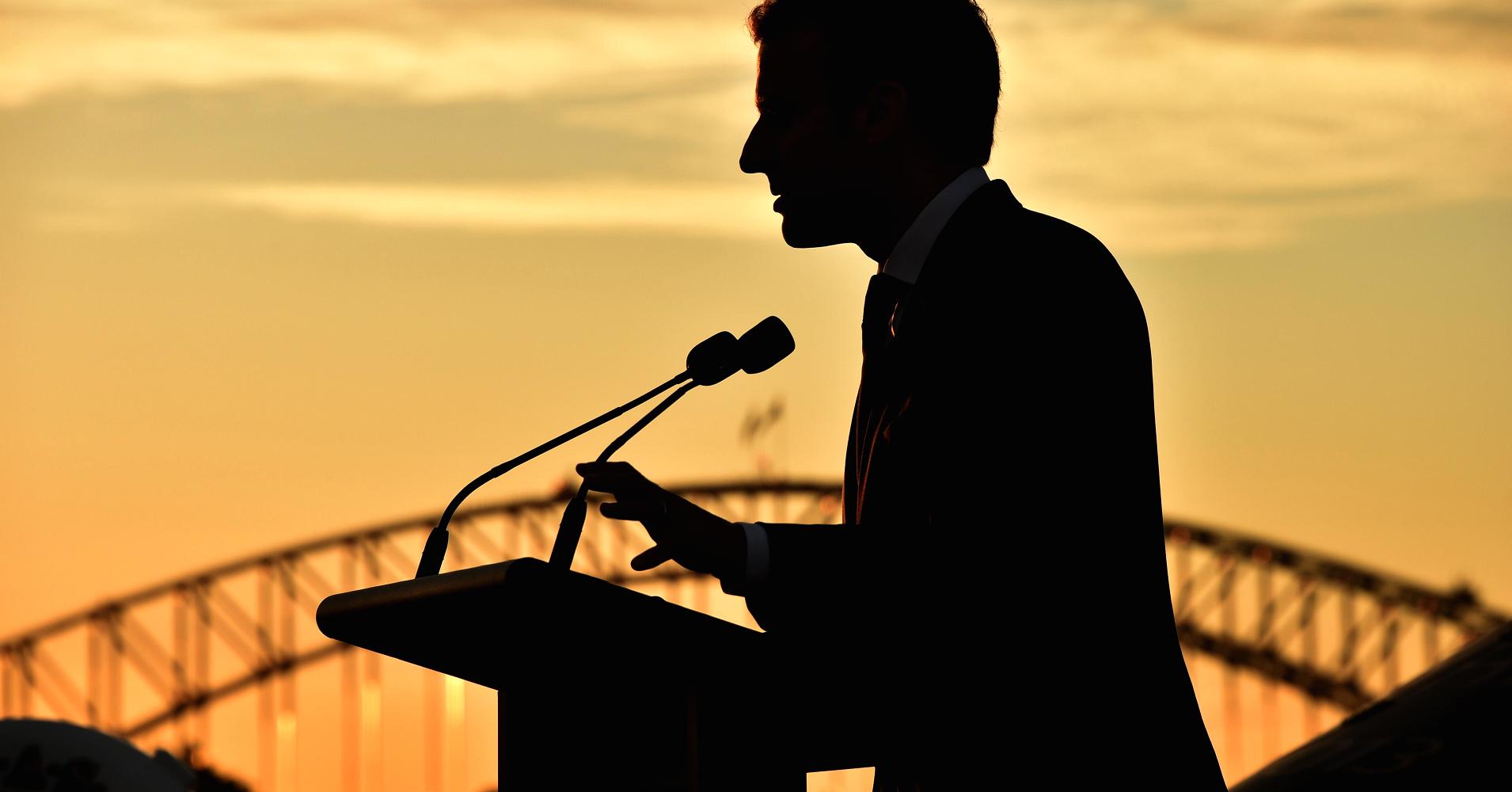
A former investment banker with limited political experience — this was how many described Emmanuel Macron at the start of his bid to become the next president of France.
But a year after his election victory, Macron has become a symbol for much needed change.
“In contrast to his predecessor Francois Hollande, who struggled to be seen as an equal partner with (German Chancellor) Angela Merkel, Mr Macron has rebalanced the Franco-German partnership,” Emily Mansfield, France analyst at the Economist Intelligence Unit, told CNBC via email.
“He hosted Vladimir Putin at Versailles, taking an assertive line that went down well with the public; and has built a relationship with Donald Trump that has made him the go-to spokesperson for Europe in the U.S.,” she added.
Macron has been positioning himself close to Trump, without supporting his policies. He invited the U.S. president to the celebrations of France’s national day last year, the first for Macron as president. More recently, Macron visited the U.S. in late April where several handshakes and hugs caught the attention of the global media.
Macron “has also championed efforts to combat climate change around the world, including in China, and is increasingly acting as a power broker in the Middle East,” Mansfield added.
“The result is that France now appears more of a major player in international affairs than it has done for some years,” she added.
Most of Macron’s efforts to position France as a global player have taken place at the European level. In September, Macron addressed the Sorbonne University — laying out a clear vision for the future of the euro area.
“He changed the sentiment on France and on the European Union,” Vincent Juvyns, a global market strategist at J.P. Morgan Asset Management, told CNBC over the phone. “Investors are no longer short on the euro,” he added.
The clarity and the renewed impetus on euro zone reform that Macron provided during the Sorbonne speech brought more confidence toward the region. Markets become more positive that the euro zone will implement more fiscal measures and somewhat relieve the burden on the European Central Bank and its large stimulus measures.
However, some argue that Macron has been too ambitious and he will find it hard to get all his ideas approved by European counterparts.
“Efforts to reform Europe were always going to be difficult, and this is the area in which he has made the least progress so far,” Mansfield from the EIU said.
“There is still much concern in Germany about greater risk-sharing in Europe, and we do not expect this to change under the new government,” she added.
Despite a conservative stance from the Germans, Macron has agreed with Merkel that the euro zone needs reform. Their two finance ministers gave a joint press conference in late April promising to come up with measures to strengthen the region, together.
Olaf Scholz, the German finance minister, said: “Germany and France are really working on this task … We are absolutely optimistic that we will succeed.”
Such euro zone reform proposals are expected to be presented in June, but it remains to be seen how far policymakers will go. Speaking at an event in London, in April, the Governor of the Bank of France, Francois Villeroy de Gaulhau, told the audience that people should never bet against Macron nor his willingness to make changes.
Nonetheless, Macron has struggled to be popular at home, according to several opinion polls. In March, his popularity levels dropped to their lowest point, 40 percent, since he took office. At the time, several protesters hit the streets across France. Public sector workers rallied against potential reforms in their sectors, including reducing the number of employees and the start of merit-based pay.
More recently, Macron’s fight has been with the national railway service, SNCF. Macron wants to change the legal status of the company, which is state owned, to become what is described as a limited company. Workers and trade unions fear the move will slowly lead to the privatization of the company. However, overall public opinion is supportive of Macron, hoping for cheaper rail tickets and more reliance on the service.
“When he became president he had a plan of several things we would work on and he is working on them one after the other,” Lars Machenil, chief financial officer of BNP Paribas, told CNBC about the president’s first year in office.
Macron has also managed to put through measures to increase transparency in parliamentary funding, to reduce wealth taxes in an attempt to make France more business friendly, as well as to liberalize the country’s labor market.
“This final measure was one of the flagship elements of Mr Macron’s program, and his success in passing it last September — despite public and trade union opposition — was a symbolic early achievement in delivering on his campaign promise to ‘unblock France’,” Mansfield said.
The labor market reform included changes to collective bargaining, which allows firms to negotiate salaries and working conditions with their own employees, without following rules applied to the entire sector. These changes also sparked several street protests organized by opposition parties and trade unions in different occasions throughout 2017.
According to Juvyns, from J.P. Morgan Asset Management, the labor market reform could have been even more ambitious.
However, “in one year, Macron has already done a lot for what he promised,” Juvyns told CNBC.
Other analysts also told CNBC that Macron has managed to achieve a lot in his first year, but there’s space for further improvements, mainly in the still-rigid labor market.
Ricardo Garcia, chief euro zone economist at UBS, said: “We had reforms also with the prior government, but Macron’s reform efforts is in particular broader. I didn’t see so many reforms within only one year with the prior government.”
He added: “The Achilles heel remains the size of the government as well as labor market flexibility. Macron has tackled these, but more remains to be done.”

